Wrapping Up the 2022 St. Louis Film Festival
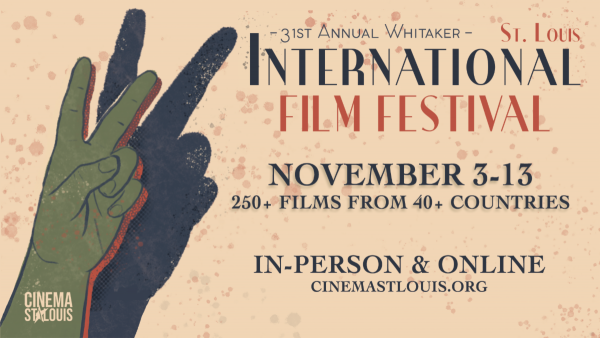
The 31st annual edition of the Whitaker St. Louis International Film Festival is now in the books, having featured an array of narrative, documentary and short films in theaters and online. Like the recently completed Chicago International Film Festival, the overall programming was a little less satisfying compared to past years, especially in its severe reduction of virtual offerings. Nevertheless, I managed to screen 8 films during the festival’s 11-day run, and what I saw was, thankfully, better than expected overall. So, with that said, here’s my take on what I watched and what I thought.
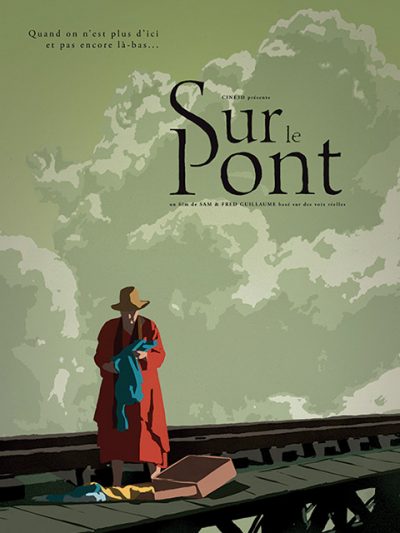
“On the Bridge” (“Sur le pont”) (Switzerland) (5/5); Letterboxd (10/10)
What exactly happens at the end of life? As we transition from this world to whatever comes next, what can we realistically expect? And how long does the process take – if time even means anything at that point? That’s what this insightful and fascinating animated documentary seeks to capture, combining the insights and speculation of individuals at the end of life, recorded in their own words from their homes or while in palliative care centers. Their observations span the spectrum of topics, from what they remember most about life to what they’re leaving behind to what they’re looking forward to and trying to imagine how that will unfold. Their moods range from ennui to hope to humor as they envision what’s ahead and how it will come into being. Much of this is set aboard a train where the passengers present their perceptions as it makes its way to a trestle crossing a river, the point of transition where it comes to a stop and the travelers begin the last leg of their journeys to whatever awaits them. All of this is presented through stunningly gorgeous animation backed by an ethereal score and, of course, the narrated reflections of the wayfarers making their final pilgrimages. Directors Samuel and Frédéric Guillaume have created a beautifully moving, eminently enlightening work that’s positively striking to look at. This is essential viewing for anyone who wonders what comes at the end of the line and how to properly prepare for it. If you’re not profoundly touched by this offering, I don’t know what will.
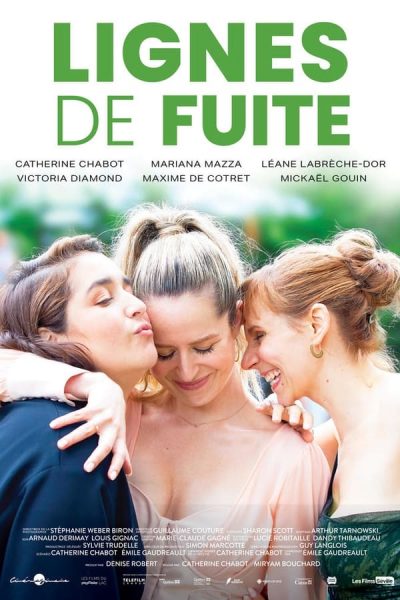
“Lines of Escape” (“Lignes de fuite”) (Canada) (4.5/5); Letterboxd (4.5/5), Imdb.com (9/10)
Given the social, economic, political and environmental challenges we face today, it would seem that, if we hope to survive, it would be in all of our best interests if we were to work together on these issues, right? But are we truly capable of that in light of the rampant intransigent polarization that has infected society on all of these fronts? That fundamental lack of cooperation seems counterproductive, that we should all strive to get along. At the very least, it seems reasonable to expect that should be the case among friends, but is that even attainable? That’s called into question in this wickedly biting dark comedy-drama about a reunion of three old friends (Catherine Chabot, Marianna Mazza, Léane Labrèche-Dor) and their significant others (Maxime de Cotret, Victoria Diamond, Mickaël Gouin) for what’s supposed to be a fun-filled night on the town in Montreal. However, things have changed in the nearly 15 years since high school, and what starts out as an evening of fun and games gradually turns ugly as the differences that distinguish the onetime pals begin to surface, shining a bright light on the pervasiveness and dangers of polarization. Directors Miryam Bouchard and Catherine Chabot have assembled a wickedly funny, bitingly cynical tale for our times, one whose stern message hits the nail squarely on the head, an offering somewhat reminiscent of the satirical dark comedy “The Party” (2017). Some might say the picture goes too far at times (an argument not entirely without merit) that decidedly takes us out of our comfort zone, coming across like the heated discourse one often finds on social media, especially in the film’s somewhat stagey final act. But sometimes it takes a blatant, in-your-face exchange of such senseless, unbridled venom to reflect back to us what’s transpiring in everyday life. That’s particularly true if we ever hope to work together to address the problems we face – and to weather the consequences we might have to deal with if we don’t.
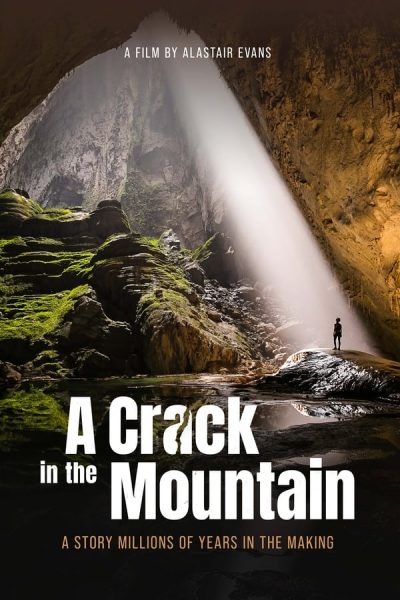
“A Crack in the Mountain” (Hong Kong) (4/5); Letterboxd (4/5), Imdb.com (8/10)
What happens when environmentalism, tourism and economic development all collide? That’s the dilemma facing the fate of the Hang Son Doong cave in central Vietnam’s Phong Nha-Ke Bang National Park, widely considered to be the world’s largest cavern system. Discovered 31 years ago and not widely explored until 2009, this four-mile-long geological formation with enormous cathedral ceilings, a fast-flowing subterranean river, an internal waterfall and pristine greenery is a UNESCO World Heritage Site and truly a global treasure. This positively gorgeous locale has an almost spiritual quality associated with it, providing visitors with a perfect environment for personal reflection and intense introspection. And, to top it all off, the cave resembles something out of a Hollywood movie a la “Avatar” (2009) or “Kong: Skull Island” (2017), a source of tremendous inspiration for many art directors and production designers in the film industry. But activists are worried whether the site will stay this way now that it’s becoming more widely known. Adventure tourists have been increasingly wanting to flock to the site, even though restrictions currently limit the number of annual visitors allowed. What’s more, investors and local residents eager to capitalize on the area’s economic opportunities have been anxious to see that potential developed. But can it be done so that ecological, business and employment considerations are harmoniously addressed, supporting sustainability and economic growth without sacrificing the environment? Writer-director Alastair Evans’s debut feature does an expert job at exploring that question from all angles, including those likely to be posed by devil’s advocates. It also provides ample discussion of the social, political, economic and historical influences that are figuring into this debate. And it’s beautifully shot and scored, showcasing Son Doong in all its splendid natural magnificence. In fact, if I had any complaint about the film, it would be that I wish it had more of that. However, what’s most important is that this documentary puts the site on the world’s radar and makes a solid case for its preservation in its authentic state, encouraging us to keep it from being overrun and tainted by the impact of hucksters out to milk it purely for financial gain. This geological gem is too important to us to lose it, so we had better protect it while we still can. And, now that the word is out, let’s hope we succeed at that.
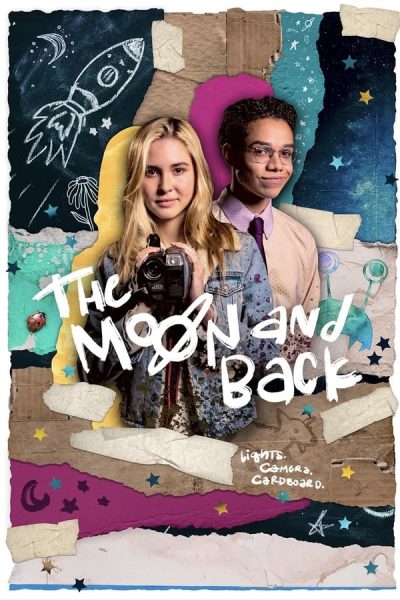
“The Moon & Back” (USA) (4/5); Letterboxd (4/5), Imdb.com (8/10)
Coming of age can be difficult enough, but, when we lose someone who has been a source of valuable guidance in the midst of that process, the result can be shattering. Under conditions like that, it can be easy to lose one’s way. So it is for Lydia (Isabel May), a distraught high school senior who feels adrift after losing the father (Nat Faxon) she adored. And those who care for her and try to steer her back on track – her mother (Missi Pyle), her guidance counselor (P.J. Byrne), a neighbor (Roman Michael) and a variety of friends (Miles Gutierrez-Riley, Molly Jackson, Taiv Lee) – seem unable to help. But, when Lydia stumbles upon an original sci-fi movie screenplay that her father wrote, the discovery finally sparks her interest in tackling something productive. She decides to make a film based on the unproduced work, but her enthusiasm is challenged when she finds out just how difficult such an undertaking can be. In doing so, she learns that, at some point, coming of age means letting go and striking out on one’s own – even leaving behind the source of inspiration who helped her get so far. Writer-director Leah Bleich’s charming comedy-drama provides viewers with a refreshingly distinctive take on material typical of this genre, providing just the right amount of heart tugs but without overdoing it, all the while serving up both laughs and serious moments that successfully avoid the clichés often found in stories like this. The narrative manages to stay on track quite well, despite a few meandering lulls, keeping the storytelling crisp and economical. And, given the excellent, incisive, edgy character development here, this offering strikes me very much as being the kind of movie that “Lady Bird” (2017) was striving to be but could never quite get right because of all its overly cutesy quirkiness. Indeed, “The Moon & Back” is a fun, pleasant, enjoyable little diversion, but it’s by no means a lightweight, just what a film of this stripe should be.

“Stand Up” (Slovakia) (3.5/5); Imdb.com (7/10)
It’s been said that misery loves company – and, as this film illustrates, it apparently loves comedy, too. But, as writer-director Juraj Bohus’s debut feature also illustrates, misery is no laughing matter, either. This engaging comedy-drama follows the exploits of aspiring Slovak stand-up comedian Mišo Vrba (Ondrej Koval), who has more self-confidence than talent but nevertheless attempts to give his passion a shot before life gets away from him. However, Mišo’s underwhelming success prompts him to drown his sorrows in drinking and philandering, jeopardizing his relationship with his longtime girlfriend, Tania (Zuzana Norisová). But those escapes are called into question when he’s paid a surprise visit by his 20-year-old American niece, Julia (Cailin Witty), who’s clandestinely traveled to Bratislava to leave behind her disappointing life back home. She subsequently goes on tour with her uncle as his assistant, an opportunity for both of them to learn how to put aside their apprehensions and finally learn how to “stand up” for themselves. It thus becomes a story of rebirth and reassessment, taking time to figure out what’s truly important and what’s ultimately superfluous, inconsequential and expendable, told with solid writing, strong character development and an overall well-balanced treatment. This 2022 release is not to be confused with the many other pictures that bear the same title, including, most recently, the 2021 German release by the same name. This iteration of “Stand Up” may take a little effort to find, but this delightful offering is a pleasant little joy, one well worth a look.
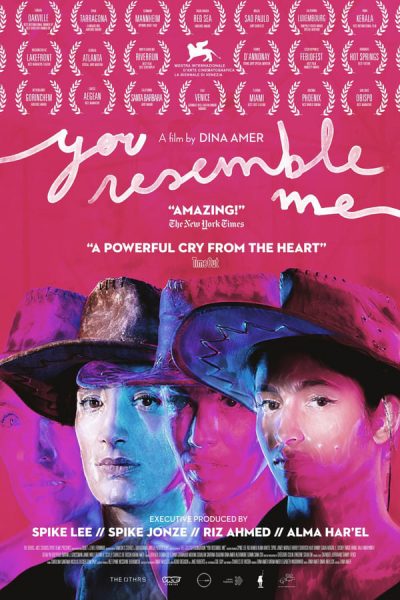
“You Resemble Me” (“Tu me resembles”) (USA/France/Egypt) (3.5/5); Letterboxd (3.5/5), Imdb.com (7/10)
How do we become who we are? Can we attribute it to our upbringing? To society? To politics? Or could it be some combination of all of the foregoing? And, even then, is there a clearly defined answer? That’s the issue addressed in writer-director Dina Amer’s multilayered fact-based debut feature about the life of Hasna Ait Boulahcen (Mouna Soualem), mistakenly thought to be the female suicide bomber who died in the wake of the multiple, coordinated 2015 ISIS-led terrorist attacks in Paris. As the film shows, however, viewers meet a troubled, confused woman who struggled to sort out her life. As a poor Moroccan immigrant living with an irresponsible single mother on the outskirts of Paris, the protagonist led a lonely life, often running away from home with her younger sister and ending up being shuffled from one foster family to another, frequently under the care of culturally insensitive native French guardians. She would later grow up to be a “party girl” who had trouble holding a job and living on her own, eventually becoming smitten with and falling under the influence of her cousin, leader of the Paris attacks, who recruited her into his cause (and her eventual downfall). Through this narrative, the film chronicles the difficulties that Islamic immigrant youth often experience in trying to assimilate into European culture, both in terms of being themselves and in fitting in, as well as finding the right balance (if that’s even possible). But is the story presented here convincing enough to show a definitive connection between what happens in childhood and what unfolds as an adult? This film illustrates what may well have happened in Hasna’s case (though some may argue that it’s a gross oversimplification), but is it indicative of her peer group overall? That might represent a sweeping overgeneralization, but the picture nevertheless tells a sad and tragic tale of a woman devastated by her circumstances, one that seeks to set the story straight in light of erroneous reporting that took place at the time of the incident. It does a rather capable job of this, too, though the script admittedly tends to hopscotch around somewhat, especially in its rather drastic time frame jump from Hasna’s childhood to her adulthood. In any event, this production certainly has its share of high-profile backers, with an executive producer team that includes Spike Lee, Spike Jonze and Riz Ahmed, among others. We may never know the full (or true) story of what actually happened to Hasna Ait Boulahcen, but this picture nevertheless illustrates that things may not always be as clear-cut as we believe them to be in cases like this and that, at bottom, we’re still dealing with a scenario involving the lives of people – no matter who they might be or what they represent.
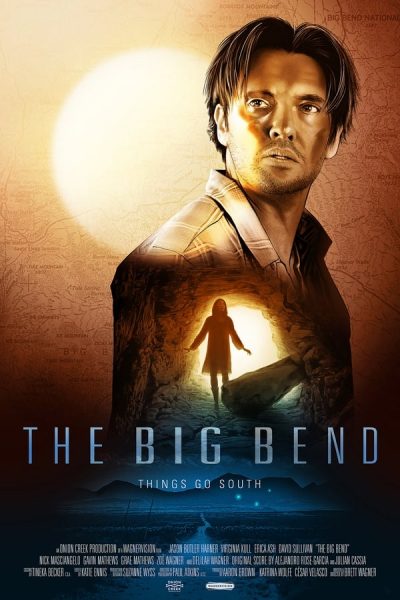
“The Big Bend” (USA) (3/5); Letterboxd (3/5), Imdb.com (6/10)
We all reach significant turning points in our lives, and we’re not always prepared for how to deal with them. Such is the case for four old friends, the Talbotts (Erica Ash, David Sullivan) and the Prices (Virginia Kull, Jason Butler Harner), two married couples experiencing a variety of issues that threaten the future of their families and relationships. They meet for a reunion at the Talbotts’ desert homestead on the edge of Big Bend National Park in South Texas, a gathering meant to provide a respite from their problems and an opportunity to enjoy the surrounding gorgeous scenery. But, as the couples find out, they can’t escape their troubles completely, that those lingering turning points stubbornly persist, symbolically looming over them like the appropriately named geography of the region’s landscape. And, to confound matters even further, additional new challenges arise that make their time together even more complicated. Unfortunately, as writer-director Brett Wagner’s second feature plays out, the complications in this comedy-drama grow a little too thick and far too numerous for the picture’s own good. Too many threads run through the narrative, and they don’t always seem to head in any kind of readily identifiable direction – that is, until the movie’s second half, when things finally begin to congeal somewhat more coherently. But, even with that, just when viewers might think that all is said and done, the picture veers off in new directions yet again. The result is a project that frequently feels directionless and relentlessly spontaneous, despite its fine performances, gorgeous cinematography, moments of inspired comedy and a handful of well-constructed second-half sequences. Yet these attributes aren’t enough to yield a satisfying whole. That’s disappointing, given that it seems the makings of a truly engaging film are present here. However, the picture’s failure to overcome its meandering tendencies and the filmmaker’s apparent reluctance to “kill his darlings” keep the project from reaching its potential, especially when it comes to addressing something as important as how to cope with life’s turning points, challenges that we must all ultimately endure.
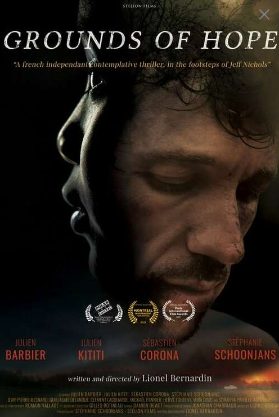
“Grounds of Hope” (“À Terre promise”) (France) (3/5); Letterboxd (3/5)
When a former smalltime boxer (Julien Barbier) down on his luck and seeking to recover from a past tragedy strives to make a new start, he quickly finds himself compromised by new challenges that force him into some hard choices. In an effort to raise money for medical treatment for his ill father, to compensate for potentially looming unemployment as a cement mason and to help his sister (Stéphanie Schoonjans) in her plans to shelter a pair of illegal African immigrants, he reluctantly makes a deal with a smart-mouthed local mobster (Sebastien Corona) to partake in fixed fights that promise lucrative payoffs for his “cooperation.” But, when events don’t pan out as hoped for, he’s backed into a corner that calls for him to fight back in ways he hadn’t planned on. While director Lionel Bernardin’s debut feature has its moments of eloquence, a fine performance by Barbier, and some fine camera work and film editing, much of the picture ends up being rather trite, especially in its comical, almost-cartoonish portrayal of the bad guy and his band of minions. In addition, the film’s attempts at providing a back story for the protagonist are underdeveloped, leaving viewers wondering exactly how he fell into the downward spiral from which he’s now trying to escape. “Grounds of Hope” appears to have a strong enough foundation for the makings of a solid film, but it feels like the script needed to go through a few more rounds of revisions to get the finished product right. It’s certainly no knock-out but, rather, more like a TKO by split decision.
Copyright © 2022, by Brent Marchant. All rights reserved.



